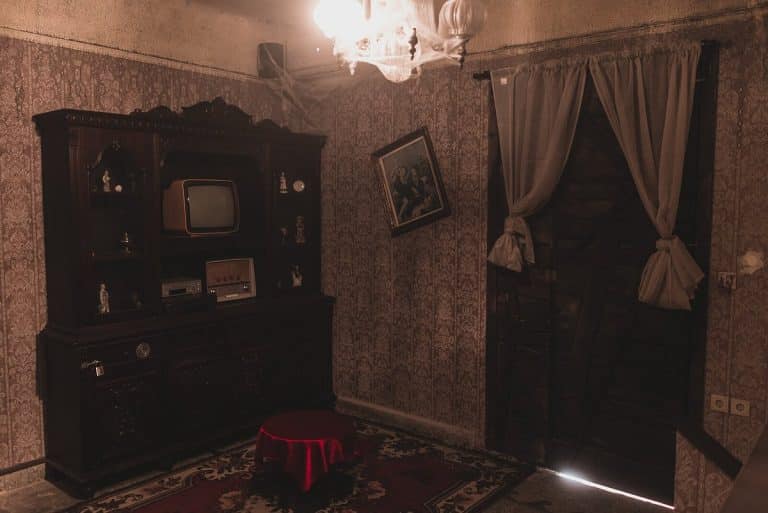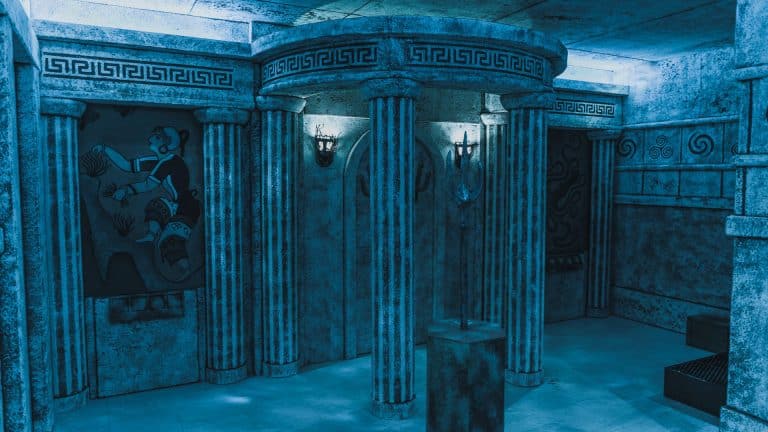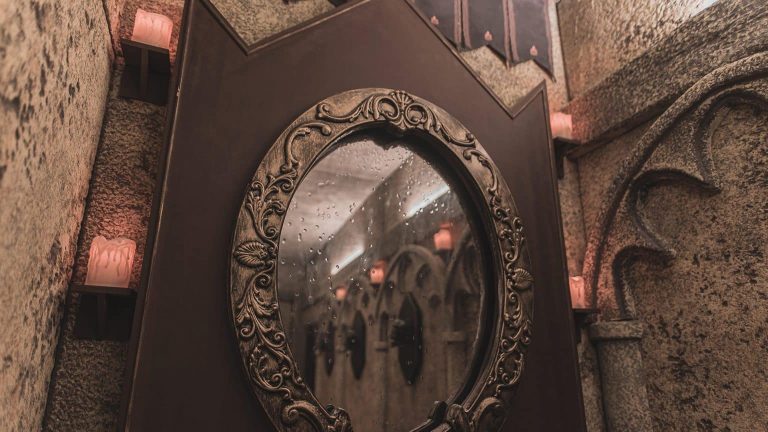How Psychology Escape Room Games Hook Our Minds
By: GameOver Atlanta | July 07, 2025 | Escape Room

Have you ever wondered why your heart races the moment an escape room door locks behind you? It’s not just the puzzles—it’s the psychology escape room experience at work. From start to finish, your brain gets pulled into a thrilling mix of challenge, fear, curiosity, and excitement. In fact, studies show that problem-solving boosts brain activity and reduces stress.
At Game Over Escape Rooms Atlanta, we see this transformation every day. People walk in unsure and walk out buzzing with energy. But what really makes a psychology escape room so addictive? Let’s dive into the mental magic behind the game.
How Escape Room Psychology Trains Your Brain
A psychology escape room works because it blends excitement, pressure, and curiosity. From the moment you start, your brain faces fast-paced decisions. You must solve puzzles under time pressure while focusing on the story.
That rush of adrenaline? It improves your focus. You see clues more clearly and react faster. Better yet, your brain balances logic and emotions during these games. Whether you are solving a tricky lock or feeling the story unfold, both sides of your brain stay active.
Plus, every mission feels personal. You’re not just solving puzzles—you are part of the story. This storytelling element hooks your brain and keeps you thinking long after the game ends.
Why Your Mind Loves Escape Room Challenges
It’s not a coincidence you feel good after finishing an escape room. A psychology escape room creates “good stress,” or eustress. This feeling motivates you, sharpens your thinking, and makes your wins feel amazing.
Also, your brain loves something called the “flow state.” This happens when you are so focused, you lose track of time. You feel completely in the moment. Many players experience this during escape rooms, which is why they keep coming back.
Of course, teamwork boosts the experience too. A psychology escape room encourages you to listen, lead, and problem-solve as a group. That is why many people leave feeling closer to their friends or coworkers.
Temple of the Skull: Using Strategy to Beat Fear
At Game Over Escape Rooms Atlanta, we’ve seen how different rooms trigger different emotions. For example, the Temple of the Skull room raises your heartbeat. The dark setting and creepy details make you alert. But instead of freezing, your brain starts solving problems faster.
This is classic escape room psychology at work. Fear focuses you. The puzzles are tough but fair. You must think clearly despite distractions. This balance of tension and strategy is what makes psychology escape room games so addictive.

One Thousand and One Nights: Boosting Memory and Creativity
Not all rooms use fear. The One Thousand and One Nights room is colorful, imaginative, and full of magical puzzles. Here, your brain enjoys the story, boosting your memory and creativity.
In this psychology escape room activity, players get absorbed in the adventure. The joy of discovery helps your brain remember patterns, storylines, and logic more easily. This is why creative rooms are great for beginners and experienced players alike.

Lost City of Atlantis: The Fun of Pattern Recognition
Do you love finding hidden meanings? The Lost City of Atlantis is packed with visual puzzles. This psychology escape room activates your natural instinct to spot patterns.
Psychologists know humans are wired to match objects and symbols. That’s why these puzzles feel so rewarding. You notice details faster and feel smarter every time you crack a code.
Also, the relaxing water-themed setting reduces stress. This allows you to focus more and enjoy every success along the way.

Philosopher’s Stone: Sharpening Logic and Thinking Skills
Logic fans love the Philosopher’s Stone room. Here, you test your thinking flexibility. You decode spells and unlock secret doors while using logic puzzles that get tougher as you go.
This psychology escape room teaches you to adapt your strategy. You must think critically and sometimes change your approach. That mental flexibility improves focus, decision-making, and problem-solving in real life too.

Why Game Masters Keep You Motivated
Another reason players love psychology escape room experiences? Supportive game masters. At Game Over Escape Rooms Atlanta, our game masters give helpful hints while letting you lead the journey.
In fact, asking for hints is part of the fun. You get nudges without ruining the challenge. This method boosts resilience. When you get stuck, you learn to keep moving forward, a skill that helps in life as well.
Why We Love Returning for More Escape Room Psychology
Once you finish one psychology escape room, you will want to try another. Why? Because every room activates your brain differently.
One game might use fear, another uses teamwork, and the next uses creativity. This constant variety keeps your brain excited. You keep learning, adapting, and improving with each experience.
Not sure why people are so obsessed with escape rooms? You can learn more by reading our post on what makes escape rooms so popular.
How Escape Room Challenges Help You in Real Life
It’s not just about fun. A psychology escape room can improve real-life skills too. You’ll boost communication, sharpen memory, and build confidence. Plus, teamwork makes it easier to work better with others at school or work.
That is why many companies use escape rooms for team-building activities. Schools also recommend them to teach problem-solving in fun ways. Even therapists suggest escape rooms to reduce stress and improve focus.
Frequently Asked Questions
What makes a psychology escape room different from other rooms?
A psychology escape room uses brain science to boost thinking, emotions, and teamwork. The games trigger focus, curiosity, and excitement.
Can escape room psychology help in real life?
Yes! These games improve teamwork, communication, and thinking speed. They can also lower stress and help people feel more confident.
Which room should beginners try?
One Thousand and One Nights is great for beginners. It mixes fun puzzles with an engaging story.
Do escape rooms work well for team-building?
Definitely! At Game Over Escape Rooms Atlanta, teams bond while solving puzzles. The experience builds trust and boosts cooperation.
Will I feel stressed inside a psychology escape room?
You might feel excited, but not overwhelmed. Good escape rooms balance challenge with fun, so you stay motivated without frustration.
Ready to Challenge Your Mind? Book Now!
Your next adventure starts at Game Over Escape Rooms Atlanta. Dive into the mental magic of our most thrilling rooms like Temple of the Skull, Lost City of Atlantis, Philosopher’s Stone, and One Thousand and One Nights. Challenge your brain, strengthen your team, and enjoy every moment of your psychology escape room experience. Visit our website today and book your unforgettable escape.
TIPS FOR ESCAPE ROOM SUCCESS
WHY CHOOSE US
Located in the heart of Atlanta, Game Over is renowned for its immersive storytelling and innovative designs. Each room is meticulously crafted to make you feel like you’re part of the story. Some of the highlights include
Varied Themes
From thrilling heists to eerie haunted mansions, there’s a room for every kind of adventurer.
Challenging Puzzles
Designed to keep you on your toes, their puzzles range from beginner-friendly to mind-bendingly difficult.
Top-Notch Facilities
Comfortable, clean, and well-maintained, Escape Game Over ensures a premium experience for every visitor.
Copyright © 2025 GAMEOVER ATLANTA. All Rights Reserved.
Created by
Blue Apple Launchpad
